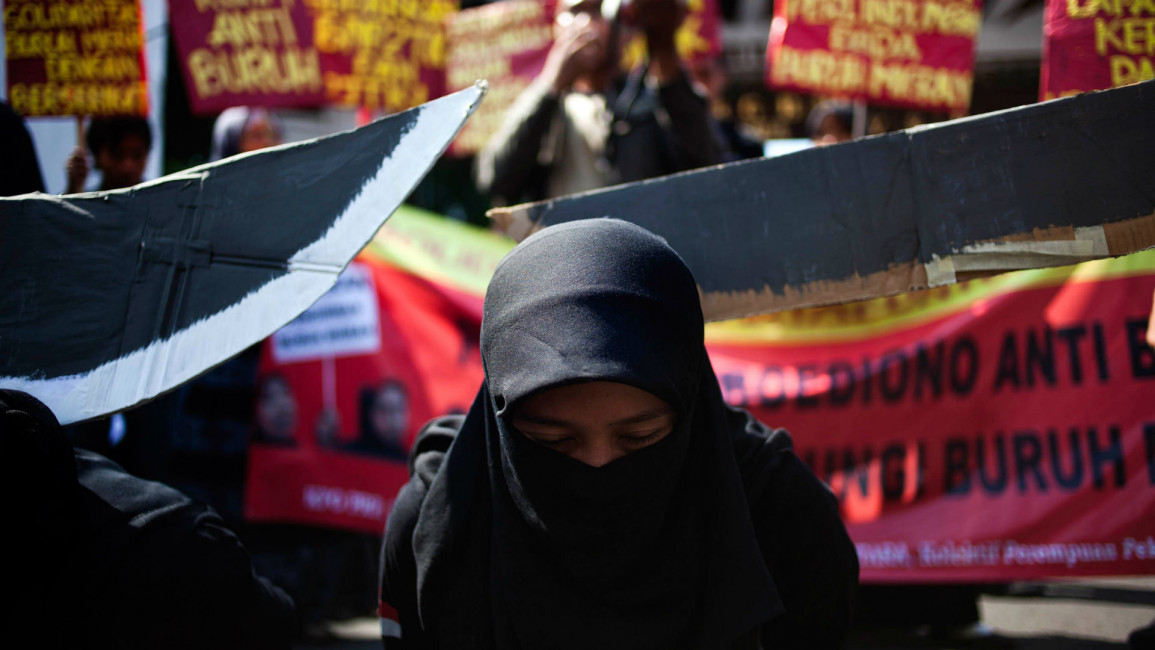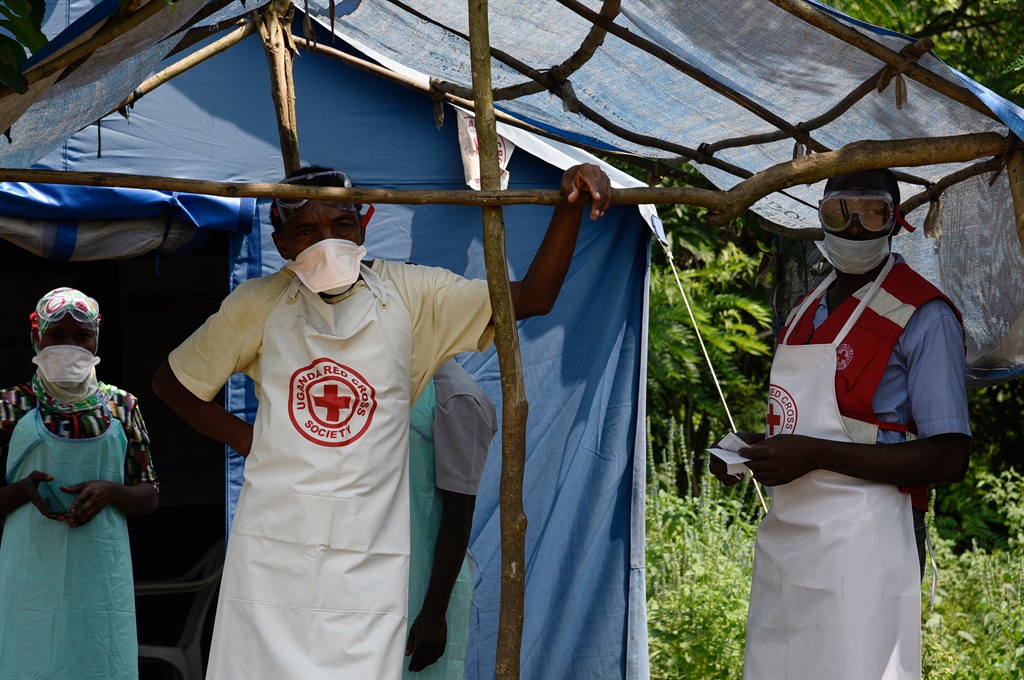Kourosh Ziabari
02 Jul, 2022
Kourosh Ziabari warns that the lack of international criticism and accountability towards Saudi, especially following the execution of 81 people, means other nations like Iran feel no sense of obligation towards the defence of universal human rights.

Amongst the 81 people executed in a single day, 41 were Shia Muslims, eight were Yemeni citizens and one was a national of Syria. [GETTY]
Only a few months have rolled by since Saudi Arabia pulled off its largest campaign of mass execution by beheading 81 people in a single day, and it seems the scandalous misadventure has been clouded by the passage of time.
Corporate media’s coverage of the Middle East has barely been affected by that travesty, and human rights advocacy organisations appear to be preoccupied with other things, including their unvarying Iran fixation.
Even by the standards of Saudi, one of the most profligate practitioners of capital punishment, such a large-scale execution is rare. In fact, it has been recorded as the largest in the kingdom’s modern history.
Of those sent to the gallows, 41 people were Shia Muslims, eight were Yemeni citizens and one was a national of Syria.
The disproportionate number of Shia people sentenced to death against the backdrop of the nation’s slender minority of Shias making up only around 12% of the population, and the action taken against nine non-Saudis cast doubt on the authenticity of the legal procedures resulting in the verdicts.
But even when the alarming cruelty unfolded, it wasn’t perceived as an anomaly or a surprise story meriting exclusive attention. There were sporadic references to the chilling execution spree in the media, and human rights organisations issued generic statements denouncing the beheading of an inordinate number of convicts whose custody and trial circumstances were debatable.
''The Saudi leadership has now recognised that its ironclad partnership with the US and other Western powers has insulated it from critical investigation over its transgressions. This is not simply favouritism, but duplicity in upholding a set of principles that are supposed to be applied coherently and integrally.''
That was pretty much it. Saudi was not singled out for scrutiny at the UN Human Rights Council, mainstream broadcasters didn’t spend hours chewing over a gross violation of human rights by an autocratic government, world leaders didn’t bombard Mohammed bin Salman with castigatory messages, and economic sanctions weren’t brandished to penalize Saudi’s excess.
Just days after the executions, British PM Boris Johnson travelled to Saudi Arabia to court the oil-rich nation to boost crude output in a bid to kick Russia out of the global energy market. There, he generously lavished praise on the royal family for their progress on human rights protection.
Iran International, a Saudi-funded London-based broadcaster that airs news and entertainment for the Persian-speaking audiences in Iran and abroad, delicately brushed aside the shocking story. It made a few cursory mentions sans the typical sentimental outcries it kicks up over imprisonment and execution reports trickling out of Iran.
Reactions to Riyadh’s rights abuses and its conduct overseas evoke valid questions around the consistency of the enforcement of human rights benchmarks and the solidity of international law.
When the murder of the Washington Post columnist Jamal Khashoggi in 2018 prompted a media frenzy and a reckoning was in the offing on the viability of a strategic partnership with the Saudis, the Trump administration, faced with unrelenting public pressure, erred on the side of safeguarding billions of dollars’ worth of arms deals that were being negotiated. He toiled away at keeping the fiasco under the wraps and avoided discomfiting MBS by speaking out against his ghastly elimination of a noted dissident. Accountability became the casualty of corporate interests.
In defiance of Congress, Trump had championed a whopping $8 billion arms deal with Saudi in 2019, which even the most optimistic ideologues of his Middle East policy contested. It came right after a contract in 2017 between the two governments when MBS set his sights on a deal to purchase weaponry from the United States valued at $110 billion.
Trump’s transactional logic persuaded him to mince words on Khashoggi’s assassination – a multibillion arms deal obviously outmatched any human rights nicety.
In the same vein, the international community has found it expedient to shrug off the years-long carnage in Yemen crafted by Saudi, the outcome of which is some 150,000 victims, including at least 15,000 civilians so far. The reasons shouldn’t be too difficult to decipher: Saudi is an essential component of an alliance that determines the balance of power in the Persian Gulf and the broader Middle East, so its military campaigns, however deadly, can be explained away.
Human rights advocacy represents an instance of Riyadh being cherry-picked for special treatment. The status of prisons, dominance of cruel punishment forms, curtailment of free speech and extreme gender inequities have produced a tapestry of overt human rights abuses that leave no room for defence of the kingdom.
Between 2010 and 2020, Saudi has executed at least 1,175 convicts, and even though the numbers cannot be precisely confirmed, some 3,000 political prisoners are languishing in jails. These are some of the reasons to be sceptical of the reforms that are promised to be rolled out. And, why the establishment must be challenged for paying lip service to the rule of law and right to life.
But the very governments and organisations that tend to be characteristically meticulous in documenting abuses internationally and denouncing the “regimes” that perpetrate them, have acquiesced to giving Saudi a free pass so that their ally doesn’t feel mortified when it tramples the universal values and indulges in cruel treatment of its citizens.
The US sanctions aimed at punishing those involved in such violations are unambiguous and already being implemented against individuals or entities within the governments of China, Iran, Myanmar, North Korea, Russia and Syria.
Since 2009 until April 2021, a total of 1,791 individuals and entities were sanctioned by the US over human rights violations and corruption. This long-winded list includes only 22 Saudi entities and individuals.
The Saudi leadership has now recognised that its ironclad partnership with the US and other Western powers has insulated it from critical investigation over its transgressions. This is not simply favouritism, but duplicity in upholding a set of principles that are supposed to be applied coherently and integrally.
One of the critical "what ifs" Iranians are asking these days, is what would have been the reaction by the international community had the Islamic Republic gone on a similar analogous rampage as Saudi?
In comparison to the kingdom, Iran has faced a hard time in the recent decades justifying its human rights failures to global audiences.
As long as states such as Saudi Arabia are given a carte blanche to suppress the civil society and extinguish the rights of their people, countries like Iran will continue to dismissively downplay the global efforts to push for accountability over human rights. They will push ahead with their own agenda, namely, arbitrary executions, imprisonments and crackdowns, because these standards are seen to be implemented disingenuously.
Kourosh Ziabari is an award-winning Iranian journalist and reporter. He is the Iran correspondent of Fair Observer and Asia Times. He is the recipient of a Chevening Award from the UK's Foreign and Commonwealth Office and an American Middle Eastern Network for Dialogue at Stanford Fellowship.
Follow him on Twitter @KZiabari














